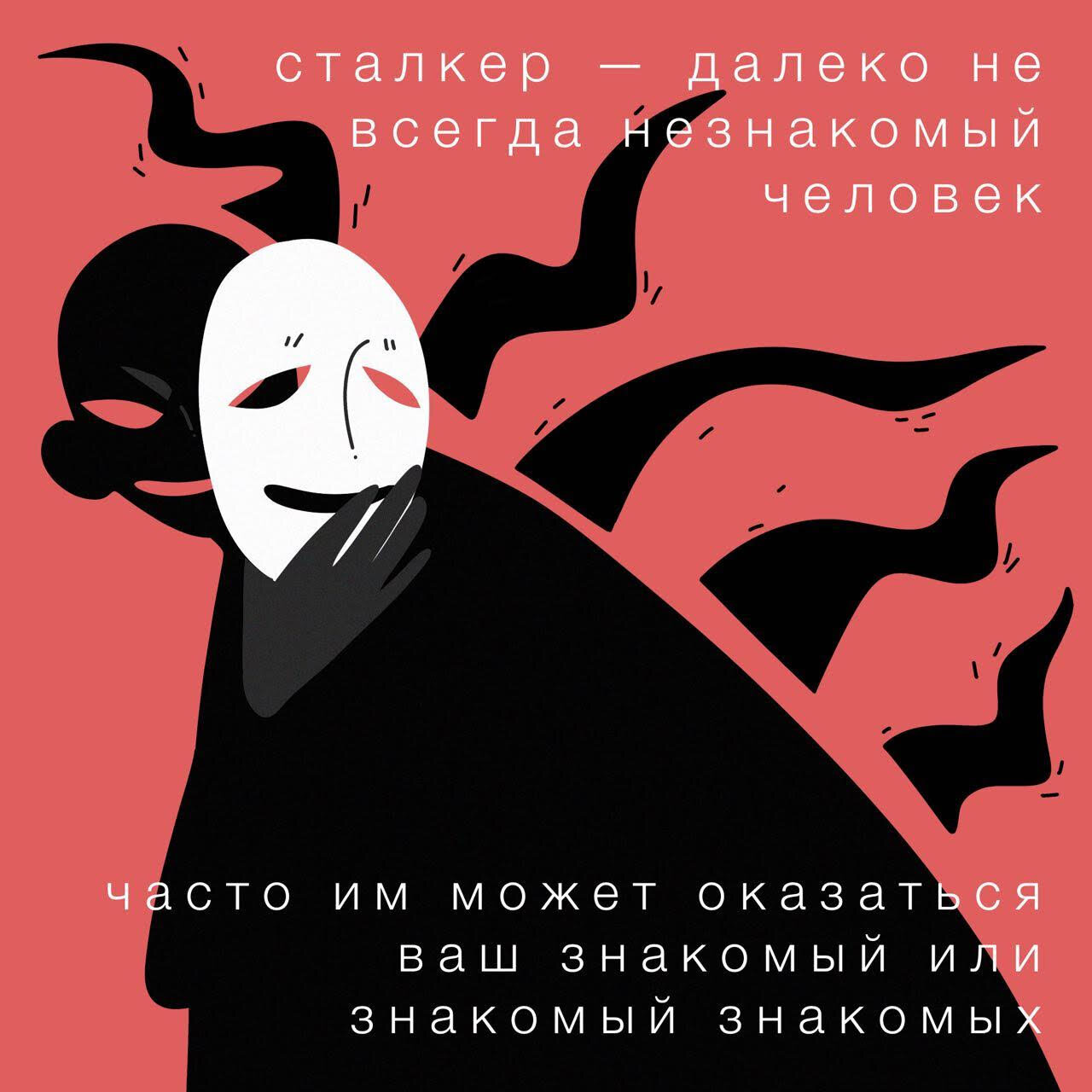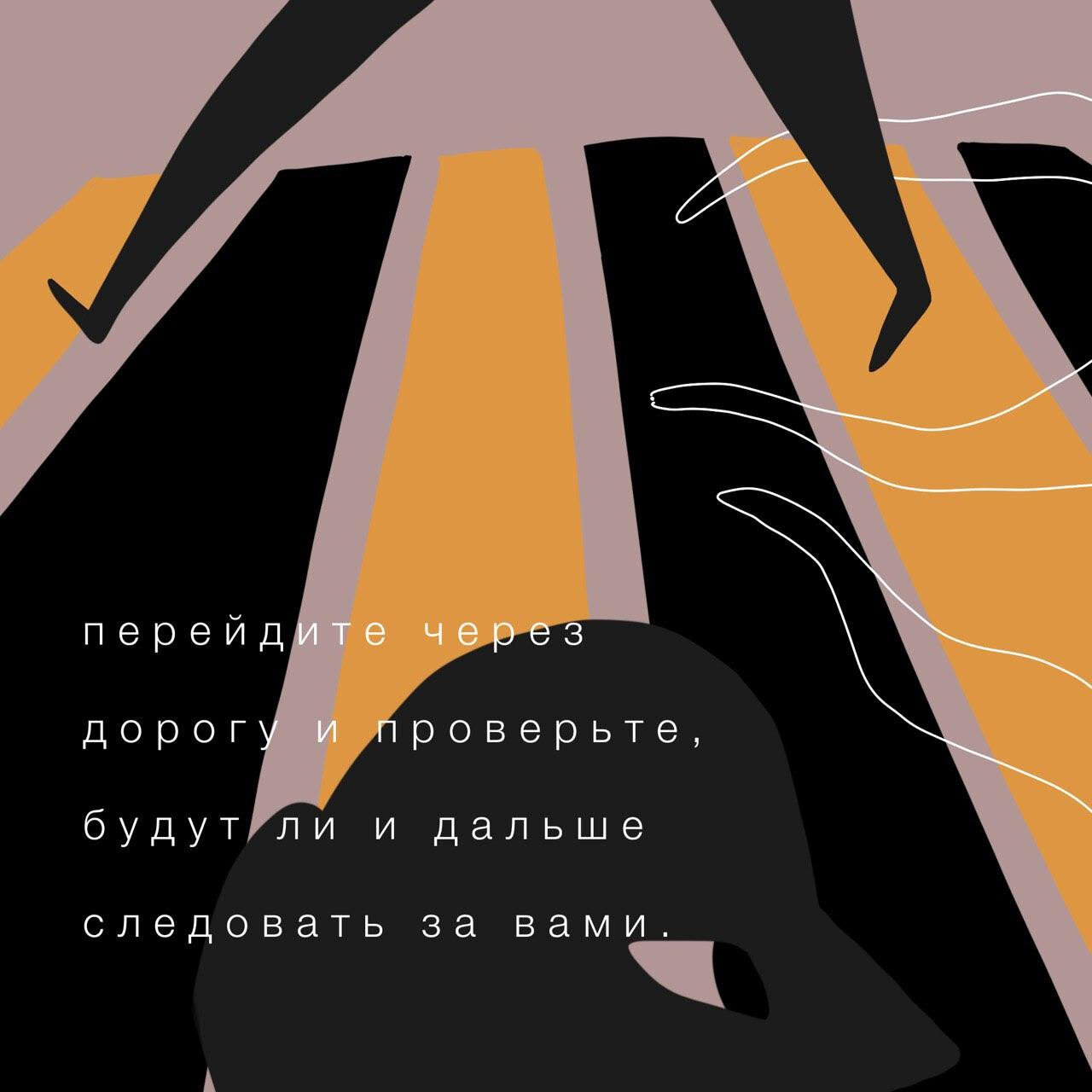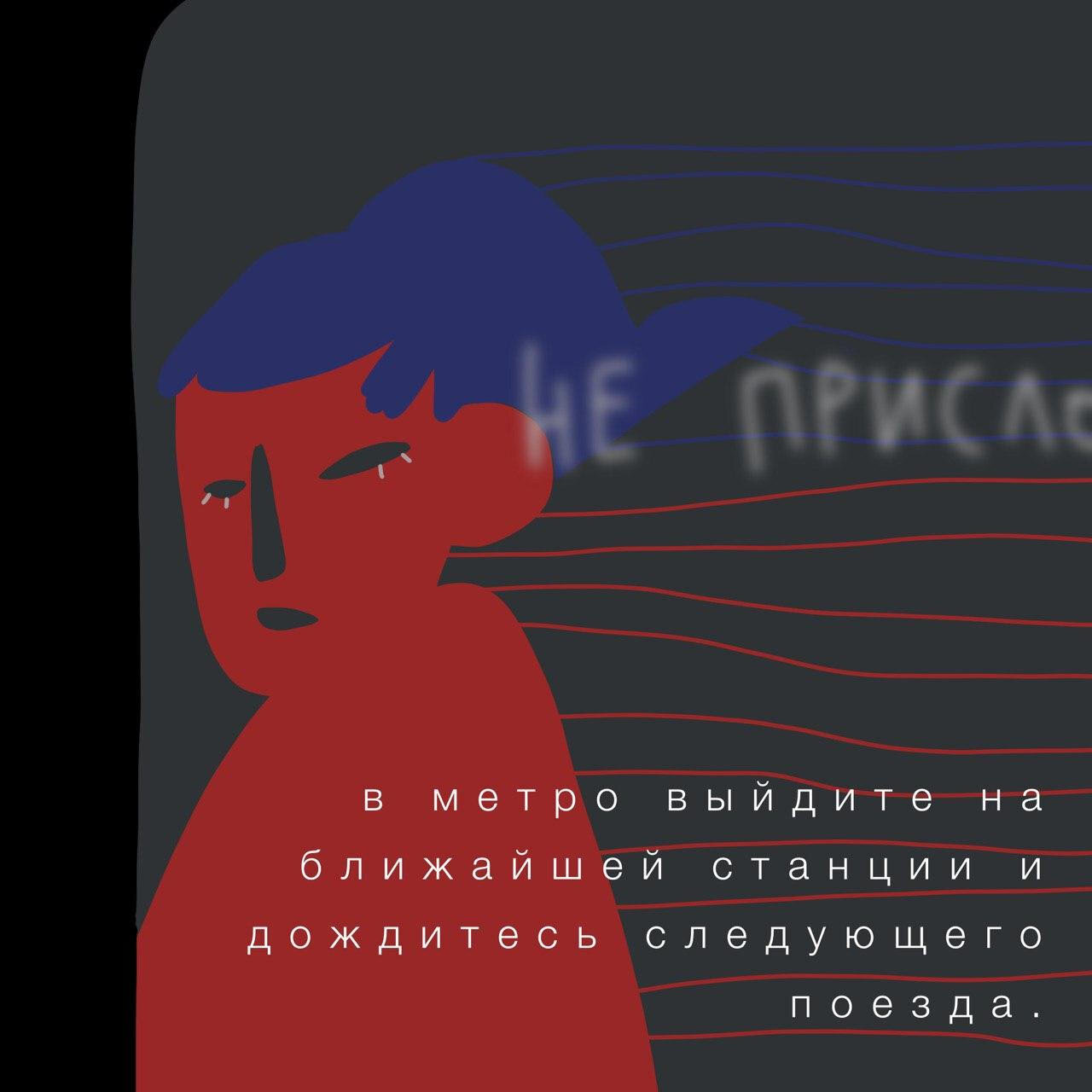«Vse Horosho Мenya Ne Ubili»: Breaking Taboos on Women's Safety in Moscow
Natalie Woodford speaks to Sasha Zabotkina about ‘Vse Horosho. Menya Ne Ubili’
(It’s Alright. They Didn’t Kill Me’), a project giving PERSONAL SAFETY advice to women that she co-founded with fellow student Vera Ivanova
Imagining it? Most likely not. Trust yourself.
Natalie Woodford [Pushkin House]: Could you give us a bit of background about yourself and the project?
Sasha Zabotkina: We are Vera and Sasha. Vera is a studying marine geophysics, and I am studying marine biology. Our project is called «Vse Horosho. Menya Ne Ubili» which can be translated like «It’s Alright. I Haven’t Been Killed». It’s dedicated to women’s safety in a big city. We write detailed articles with advice for women about what they should do before, during and after something uncomfortable like harassment or stalking happens. After we do the research, we make simple colourful illustrations and post the article section by section on Instagram. Our posts resemble safety cards on aeroplanes.
Natalie Woodford: What are some of the achievements of the project?
Sasha: We have three main achievements so far. Our project gathered a large amount of followers in a really short time which shows how big the problem really is; we constantly receive comments from our followers, friends and colleagues saying that our advice and posts have helped them in real life; and many men we know told us they had not understood how frequently the situations we write about happen to women everyday before they saw the response to “Menya He Ubili”.
Natalie: What dangers do women’s rights activists face in Russia? How do they combat them?
Sasha: To be frank, there are many. There are problems both on the government level and on the level of social opinion. Russia is a very conservative country. We have many big internet groups bullying women who have posted photos that they think are inappropriate for “pure” women to post and against women who are speaking up about their rights. These groups leak women’s pages on social media and on the pages of their families and friends. Then they start to write to them and threaten them, even with death threats. The biggest group of this kind is called “Muzhskoe Gosudarstvo” (Male State).
The biggest and the best example of danger on the government level is the situation with the domestic violence law. Nowadays domestic violence in Russia is considered legal and punishable only by a fine. Women’s rights activists are trying to change this, but the authorities hinder all the attempts. We can never feel safe in Russia even when we are at home.
Women’s rights activists are being sent to prison just for being themselves. The most high-profile case in the past year is Yulia Cvetkova. She is an illustrator who shares her drawings of sometimes naked women, talking about how women have body hair and menstruation and that this is normal. Now she may spend six years in prison for the “distribution of pornography”.
Natalie: Can you summarise why you think that domestic violence is so prevalent in Russian society today? Has any significant moment led to this: for example legislation, current events?
Sasha: Government policy in Russia is aimed at preserving traditional values and the standard gender roles of men and women in society and family life. The authorities try to preserve this idea of family, even when brutal violence occurs within the home. This leads to the normalisation of this behavior.
Natalie: Immigrants in the UK are particularly vulnerable to domestic violence, is this the case in Russia too? Are you aware of what is being done to tackle this issue?
Sasha: There are even bigger problems faced by immigrant women in Russia. There are not many shelters for domestic violence survivors and some of them officially say that they reserve the right to refuse assistance to immigrants. This is brutal and racist and is something we do not support at all.
Natalie: What kind of legislation could alleviate the situation in Russia? For example, could stalking be criminalised? Do you think this could be successful?
Sasha: The Russian situation is currently unacceptable. It is very bad at this point. Right now we can not even dream about criminalising stalking or harassment. It would be a great achievement for us to first criminalise domestic violence. Hopefully someday when it is criminalised other manifestations of abuse will also be included. There is a version of the domestic violence law proposed by Russian feminists which is a very comprehensive document and this also has a part addressing stalking by a cohabitant.
Natalie: What plans do you have for 'Menya Ne Ubili' in the future and what changes would you like to see in Russian society? Is it possible that the current young generation will think differently about women's rights and the rhetoric regarding domestic violence?
Sasha: In the near future we plan to post an article devoted to harassment in the academic environment and to keep writing about things we do not see enough content about ourselves. It is very important to point out that the situation in Russia is changing and there are more and more projects aimed at fighting for women's rights appearing every year. For example, there is a festival called “NE VINOVATA” which takes place in many different locations places in Russia on March 8th. All of the money raised at this festival is transferred to funds dedicated to helping women who have survived violence. There are more people starting projects like ours every year; new people starting to educate themselves every day. Our biggest plan is to continue to help raise awareness of these issues.
Vera Ivanova (right) and Sasha Zabotkina (left) are both studying at Moscow State University. Vera is a marine geophysicist, illustrator and women’s rights activist and has special interest in contemporary art, emo hip-hop and postcolonial studies. Sasha is a marine biologist, artist and biology teacher and intersectional feminist activist. Sasha’s special interest is underground culture and gender studies.
Follow «Vse Horosho. Menya Ne Ubili» on Instagram
Natalie Woodford is a Pushkin House volunteer and First-Class Russian Studies and Politics graduate. She has a special interest in Soviet and post-Soviet politics, particularly foreign policy.
Young Pushkin is a scheme run by Pushkin House that aims to inspire, provide knowledge and create an informal space for young people interested in Russian art, culture and current affairs to meet and network. If you are interested in getting involved in the Young Pushkin scheme, would like to produce a Young Pushkin event or content series, or have any other ideas you would like us to cover, please contact Natalie Woodford via email: natalie.woodford@pushkinhouse.org.uk







